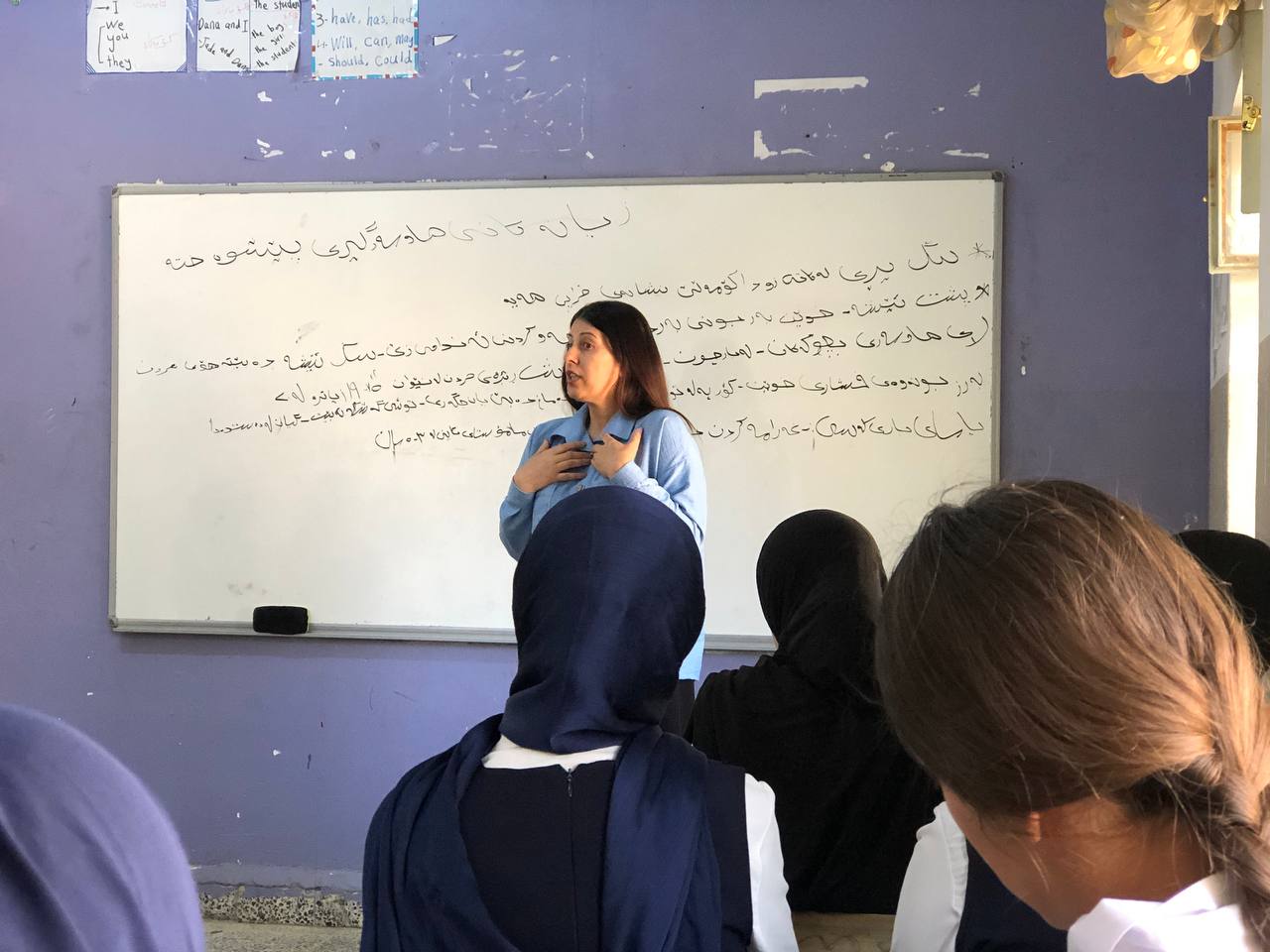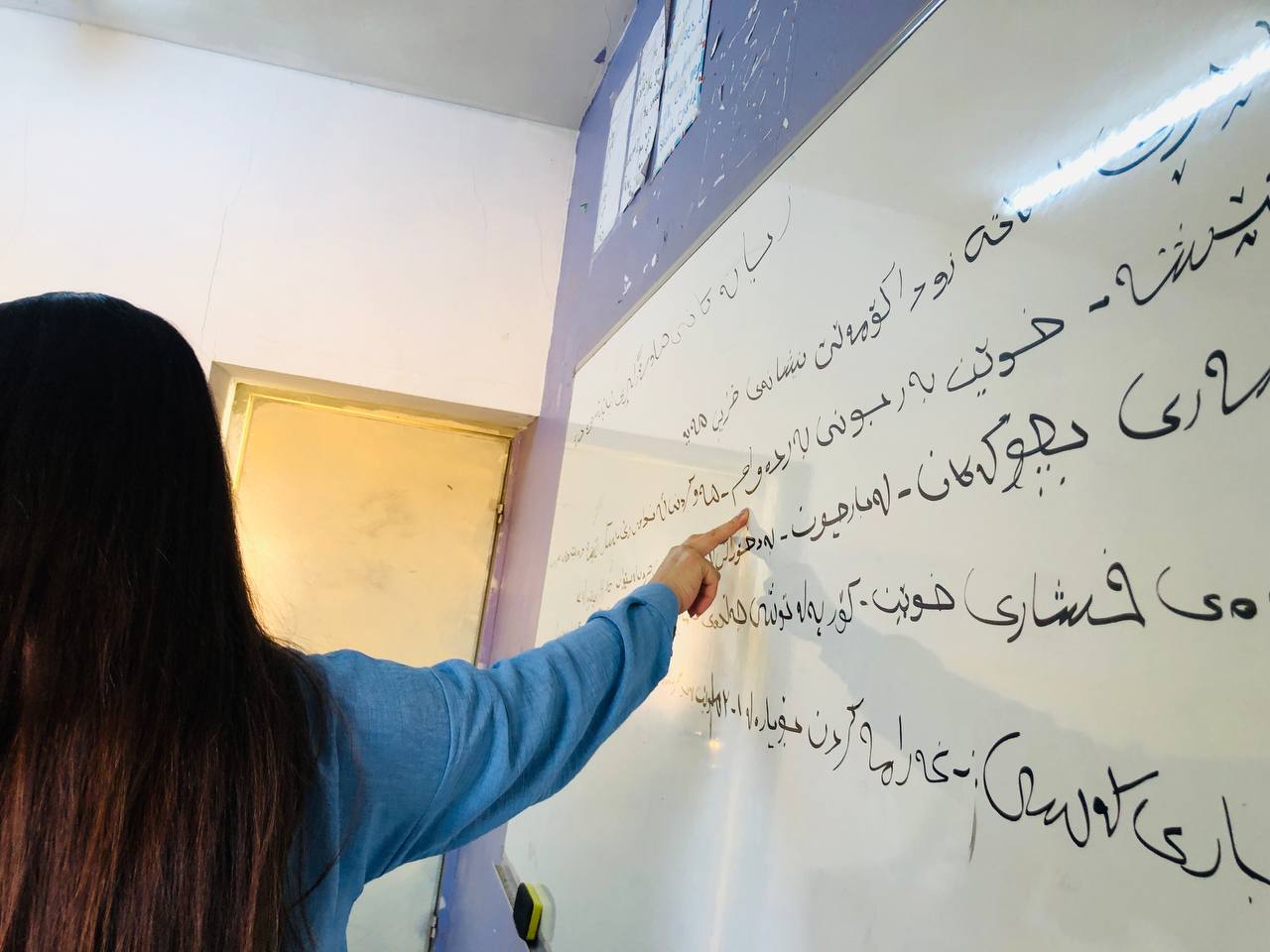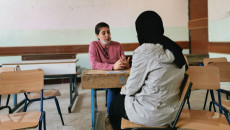The Women Journalists Network for Environmental Coverage highlighted the consequences of premature (early/child) marriage for a number of teenager students of a secondary school for girls in Kalar district of Sulaymaniya northern province.
The seminar addressed the sudden and long-term damage of such marriage on women's physical and psychological health.
Leila Ahmad, an organizers of the network, told KirkukNow, "The focus was on the health and psychological harms of early marriage, for example, according to available data, early pregnancy causes a number of bad consequences such as prolonged pregnancy, miscarriage, and fetal stroke, in addition to psychological consequences.”
The rate of early marriage in Sulaimaniyah province is over 20%, according to a survey by the Central Statistics Agency of the Iraqi government, but it is 28% in the whole of Iraq, due to the highest rate in middle and southern provinces.
Established in December 2025, (Women Journalists Network for Environmental Coverage - KirkukNow) aims through these seminars to raise awareness among students about the dangers of premature marriage. Education sector officials noted that early and arranged marriage in schools has led some girls dropping out of school.
Child marriage is a formal or an informal union of two persons at least one of them is under 18 years old. Child marriage is also known as forced marriage, since a child usually lacks the maturity and level of information necessary to make an informed choice. Children also often accept to get married under pressure, including threat or actual use of force, says a report about child marriage in the Iraqi Kurdistan Region IKR by United Nations Population Fund UNFPA.

Several students of Tazade Basic School for girls also cited examples of early marriages of several students and relatives, including the marriage of a 13-year-old girl who was forced to get married after her father passed away.
They also cited the example of another friend who got married at the age of 14 and then the fetus died.
Rebwar Ali, director of TazadyMixed Basic School, said: “There were early marriages in our school. There were many other girls whose families wanted to take them out of school and marry but I stopped it by talking to their fathers and convinced them to step back.”
“I am against early marriage... but students and society also need to raise awareness about early marriage. You are the first group to spread this awareness,” Rebwar Ali said.
According to a report by the Iraqi Supreme Judicial Council, early marriage is one of the main reasons for the increase in divorce rates, and UN statistics show that 28% of Iraqi girls get married before the age of 18, and 22% of unregistered marriages were girls under 14. Meanwhile, girls forced into early marriage are more likely to face violence, threats and health problems.
KirkukNow has previously published several investigations about the increase in early (forced) marriages in Mosul, Ninewa province and other disputed territories of Kirkuk, Diyala and Salahaddin.






